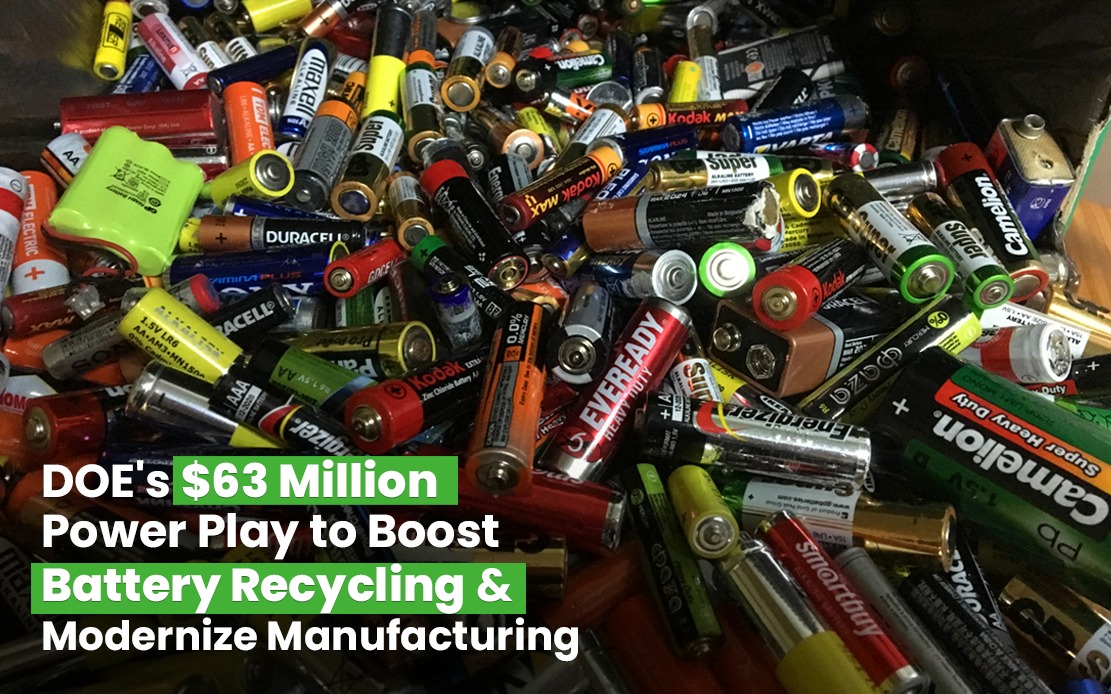The US Department of Energy (DOE) has initiated a huge program under which up to $63 million will be provided to support state and local governments in the enhancement of battery recycling and US manufacturing. As a part of DOE’s MESC funding, this amount has been allocated to help SMMs in procuring advanced technologies like sensors and models. The program is one of many that aim to reach a net-zero economy by 2050 and improve American dominance in global manufacturing.
The US Department of Energy’s (DOE) plan involves establishing new battery recycling processes in partnership with states and municipalities by providing more convenient collection sites.These efforts will be supported by $41 million earmarked for the second phase of a $50 million allocation from the Bipartisan Infrastructure Law. This phase will enhance state-wide and local recycling programs, with a focus on increasing public awareness, education, and community benefits.
In the first phase, DOE selected projects projected to leverage over $14.4 million in public and private investment. The second phase will build on this momentum, seeking partnerships with state and local governments to create or enhance battery collection, recycling, and reprocessing projects.
The Department of Energy is also promoting the use of smart manufacturing technologies in its effort to upgrade the US manufacturing industry. These technologies are necessary for improving efficiency, cutting costs, conserving energy, and enhancing product quality. However, despite their advantages, some SMMs are discouraged by expensive starting outlays and lack of accessible training materials.
To bridge this gap, the DOE has allocated $22 million for the second phase of the State Manufacturing Leadership Program, part of a $50 million total investment. The first phase saw the award of 12 projects designed to support over 3,500 SMMs in implementing smart manufacturing technologies. The second phase aims to expand these efforts, providing competitive funding awards of up to $2 million per project over three years. Applicants are expected to offer a cost share of at least 23.1% of the award.
By leveraging advanced technologies and fostering state and local partnerships, the DOE is paving the way for a more efficient, sustainable, and innovative manufacturing landscape in the United States.









